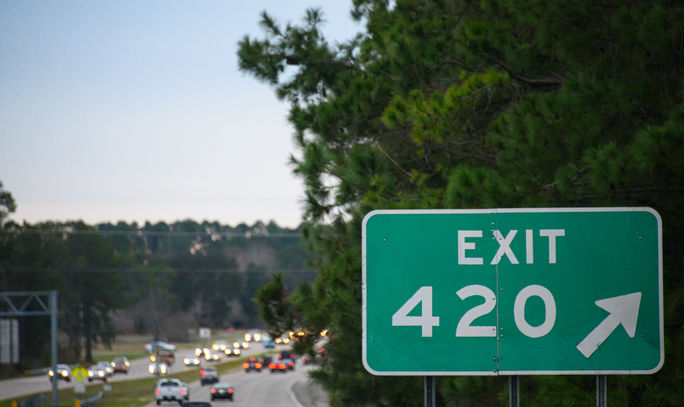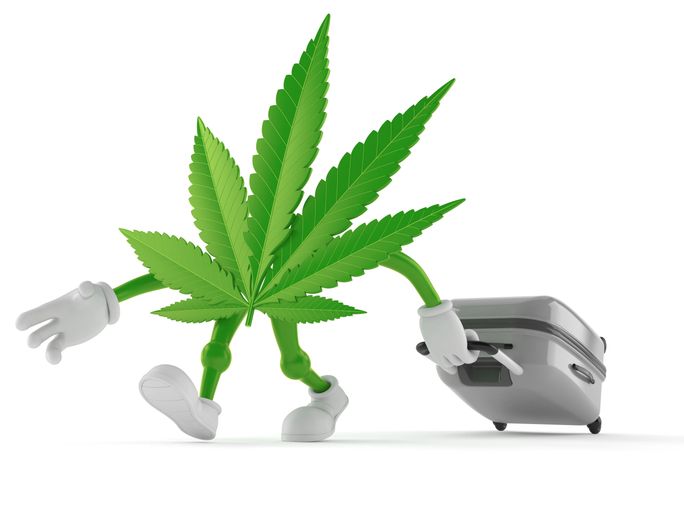
by Donald Wood
Last updated: 2:50 PM ET, Wed April 17, 2024
As marijuana users get ready to honor the unofficial April
20 celebration of all things weed, many travelers are still unclear about where
medical and recreational use of the controlled substance is permitted.
From a federal level, cannabis is classified as a Schedule I
substance under the Controlled Substances Act, which claims marijuana has a
high potential for dependency and no accepted medical use, making distribution
a federal offense.
While federally illegal, each state is permitted to make its
own decisions about medical and recreational use, whether to follow the federal
ruling, decriminalize marijuana completely or fall somewhere in the middle.
Medical and Recreational?Marijuana in the United States
Since California became the first state to legalize medical
marijuana in 1996, 40 states and the District of Columbia have legalized the medical
use of cannabis. As for recreational use, 24 states and Washington D.C.
decriminalized adult-use marijuana.
According to data from the National
Conference of State Legislatures (NCSL), the 24 states and territories that
support both recreational and medical weed use are Alaska, Arizona, California,
Colorado, Connecticut, Delaware, Guam, Illinois, Maine, Maryland,
Massachusetts, Michigan, Minnesota, Missouri, Montana, Nevada, New Jersey, New
Mexico, New York, Ohio, Oregon, Rhode Island, Vermont, and Virginia.?
While states like Florida, Louisiana, New Hampshire, and Pennsylvania
have legalized medical marijuana, travelers are still not permitted to purchase
the controlled substance for recreational use. Many of the cities within these states��including
Philadelphia��have decriminalized small amounts of weed.
Last year, the Hawaiian government started working
on legislation that would eventually legalize adult-use recreational
marijuana. The state��s attorney general even said that her office would stop
opposing legalization and help ��lawmakers and stakeholders to proactively help
advance the reform.�� Cannabis is not legal in Hawaii now, but if it ever is legalized, the state would most certainly see a tourism boost just as Colorado, California and many other states have since they launched legal sales.?
For those thinking about traveling
to Mexico, the rules for international visitors remain unclear. Mexico News
Daily reported that ��tourists could face stricter consequences�� if caught with
marijuana, while the U.S. Embassy and Consulates in Mexico said, ��Drug
possession and use, including medical marijuana, is illegal in Mexico and may
result in a lengthy jail sentence.��
US Cities Embracing Weed

Exit 420. (Photo Credit: Darwin Brandis / Adobe Stock)
The continued legalization of medical and recreational
marijuana has led several cities across the U.S. to embrace weed and capitalize
on it by making it part of the local tourism industry. A recent study found the
top cities offering marijuana-friendly
rentals.
Boulder, Colorado, tops the list as the No. 1 destination
for cannabis-seeking travelers, racking up 104.3 weed-friendly vacation rentals
per 100,000 residents. The data from Upgraded Points found the average price for
a stay in Boulder was $242.72 per night.
For smokers looking for a cheaper adventure, the study found
that Burlington, Vermont, has 87.5 cannabis-friendly rentals per 100,000
residents, running travelers an average nightly rate of just $180. Other cities
that made the 420-friendly list include Las Vegas, Nevada; Scottsdale, Arizona;
Portland, Maine; and Denver, Colorado.
Can You Fly With Marijuana?
Travelers are also becoming increasingly curious about the
legality of flying with medical and recreational marijuana, but the Transportation
Security Administration (TSA) says that is a bad idea.

Marijuana tourism continues to grow (Photo Credit: Talaj / Adobe Stock)
A spokesperson from the TSA broke down the federal
agency��s stance on marijuana and what happens when a traveler is discovered
to be carrying weed.
��As has always been the case, if during the security
screening process a TSA officer discovers an item that may violate the law, TSA
refers the matter to law enforcement,�� the statement said. ��Law enforcement
officials will determine whether to initiate a criminal investigation or what
steps �C if any �C will be taken.��
Since marijuana remains an illegal substance under federal
law, TSA agents will refer the situation to local law enforcement, slowing down
the travel process and possibly resulting in a criminal case, depending on the
location.
To be safe, do not bring weed to the airport.
For the latest travel news, updates and deals, subscribe to the daily TravelPulse newsletter.
Topics From This Article to Explore